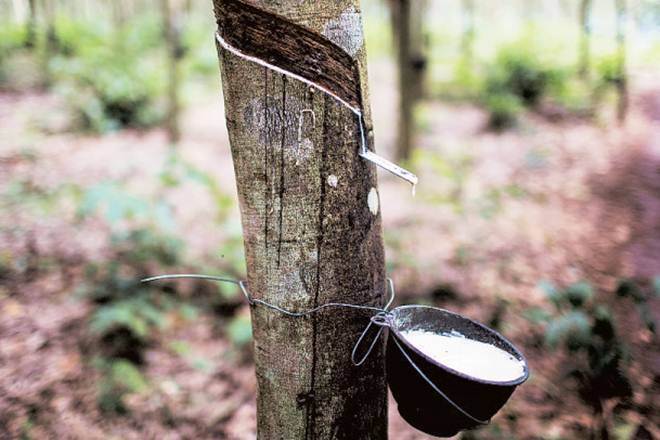The Rubber Board of India has proposed a Rs 1,000-crore rehab package for the natural rubber sector to offset the losses due to the lockdown to the Union commerce ministry.
This includes zero-interest loans, part-funding of price-stabilisation corpus and free rain guarding material for rubber plantations.
Interest-free loans based on Bangladesh-model would be useful to support NR plantations to pay wages and maintenance costs during the lockdown period, according to the Rubber Board, in its proposals to the Centre.
Following the Covid-19 outbreak, Bangladesh had created a BDT 5,000-crore (about $589 million) corpus to lend to exporters, so that they can pay wages for three months. This is to be repaid in two years, in easy monthly installments. This Bangladesh model is an interest-free loan with a 2% service charge.
Besides the zero-interest loan, Rubber Board has proposed that the Centre should take initiative in supplying free rain guarding material to rubber plantations and give assistance for replacing old, ailing rubber trees.
“Timely action in plantation procedures like rain guarding would allow tapping of trees during the monsoon months too,” K N Raghavan, executive director, Rubber Board, told FE. He ruled out shortage in NR supply in the current fiscal.
However, nearly 10 lakh rubber growers are in trouble, as the lockdown season production losses has touched nearly 35,000 tonne.
Currently, Kerala government has initiated a price stabilisation fund for rubber. This fixes the minimum NR price at Rs 150 per kilo. When the price falls below this benchmark, the subsidy steps in to meet the shortfall. Rubber Board, in its proposed Rs 1,000-crore package, has suggested that Centre supports this Rs 200-crore price stabilisation fund, with its own share of assistance.
Kerala, which accounts for 85% of India’s NR production, has allowed plantations to be active during the lockdown, utilising 25% of the workforce. Latex processing units and latex gloves manufacturing factories have been told to function with 25% manpower, adhering to the Covid-19 protocol. The demand for surgical gloves has surged to 100 million units per month, post-Covid outbreak. However, the country’s entire 33 surgical-glove making factories are yet to go into full capacity utilisation.

